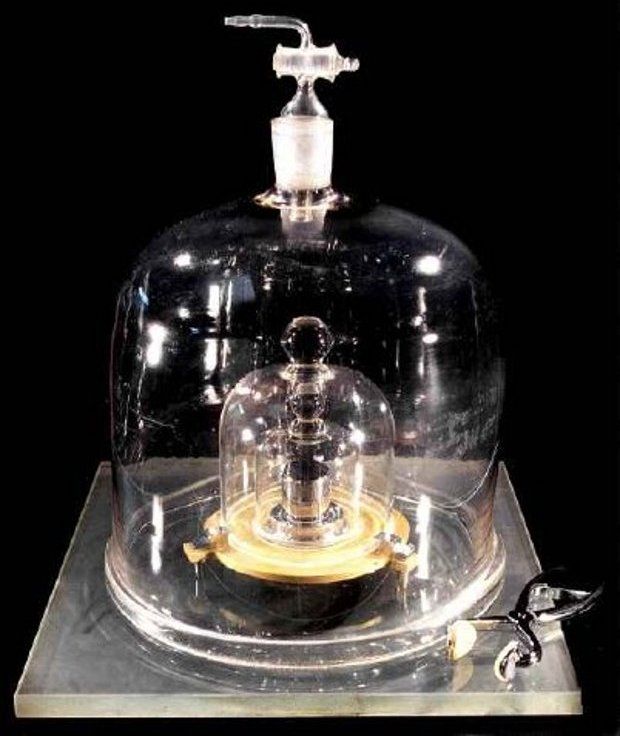For well over a century now, the kilogram has been defined by a platinum and iridium cylinder kept in a high-security vault just outside Paris, France.
Known as the Perfect Kilogram, the International Prototype Kilogram or Le Grand K, this cylinder is kept under three bell jars to keep it safe from dust or whatever other threats to its integrity.
Taking such great care of what is essentially a metal cylinder might sound just a wee insane, but the fact of the matter is that, if something were to happen to Le Grand K, our units system would take a serious hit.
After all, this platinum and iridium cylinder is the kilogram by which all other kilograms are made. Ruin it and the standard unit it represents will be ruined too.
Except scientists are now looking to retire it
Come 2018, the International Committee for Weights and Measures (CIMP) plans to release a redefinition of units of measure as we know and use them. As it turns out, they also plan to retire Le Grand K and have it replaced by a definition of the kilogram based on mathematical constants.
Scientists have been racking their brains trying to come up with a suitable and most importantly accurate theoretical definition of the kilogram since the 1970s. It took them quite a while, but it looks like they've finally figured this one out.
“In 2011, the CIPM formally agreed to express the kilogram in terms of Planck’s constant, which relates a particle’s energy to its frequency, and, through E = mc2, to its mass.”
“This means first setting the Planck value using experiments based on the current reference kilogram, and then using that value to define the kilogram,” Nature explains.
The new purely mathematical definition for the standard kilogram that will be introduced officially in 2018 will likely use a value of Planck's constant determined with an uncertainty of just 12 parts per billion, which is well within the International Committee for Weights and Measures' requirements.
It goes without saying that, if other experiments until then determine an even more accurate value of this constant, then our course researchers will use this more precise estimate instead.
Why researchers want Le Grand K retired
For one thing, the kilogram is the only standard unit that is still based on an actual physical object rather than fundamental constants. The reason researchers want to change this is because, whereas physical objects can transform over time by gaining or losing atoms, mathematical constants are fixed.
Then, scientists say that, when the new mathematical kilogram is introduced, this exact unit of measure will become available to anyone anywhere on Earth and not just to people who happen to be in France and can inspect the platinum and iridium cylinder kept safe in the vault outside Paris.

 14 DAY TRIAL //
14 DAY TRIAL // 

